CACR at the Diversity Forum
In an inspirational two-day Diversity Forum in Christchurch, New Zealand, organized by the Human Rights Commission, academics, government, private organizations, big business and everyday New Zealanders gathered together to discuss tough issues which New Zealand faces as it becomes an increasingly diverse nation.
CACR at the Diversity Forum
2015-11-11T12:13:58+13:00
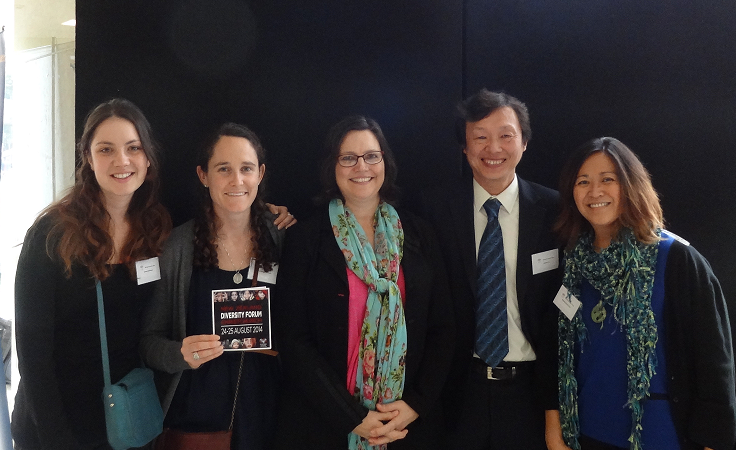
Sara Morgan Watters
In an inspirational two-day Diversity Forum in Christchurch, New Zealand, organized by the Human Rights Commission, academics, government, private organizations, big business and everyday New Zealanders gathered together to discuss tough issues which New Zealand faces as it becomes an increasingly diverse nation.
This year marked the 10th anniversary of the New Zealand Diversity Forum, and this year’s theme was “Migrant and Refugee Employment: Valuing Diversity”. With the recruitment of skilled foreign labour being an important part of the rebuilding process post-earthquake, Christchurch has the opportunity to lead the country by example as it tackles racism and diversity issues.
Optimism was certainly the reoccuring theme over the two days, and panellists, speakers, and participants shared best practice, realistic solutions, and practical actions to deal with racism, migrant and refugee employment, and enhance national social cohesion.
Racism
Overt racism
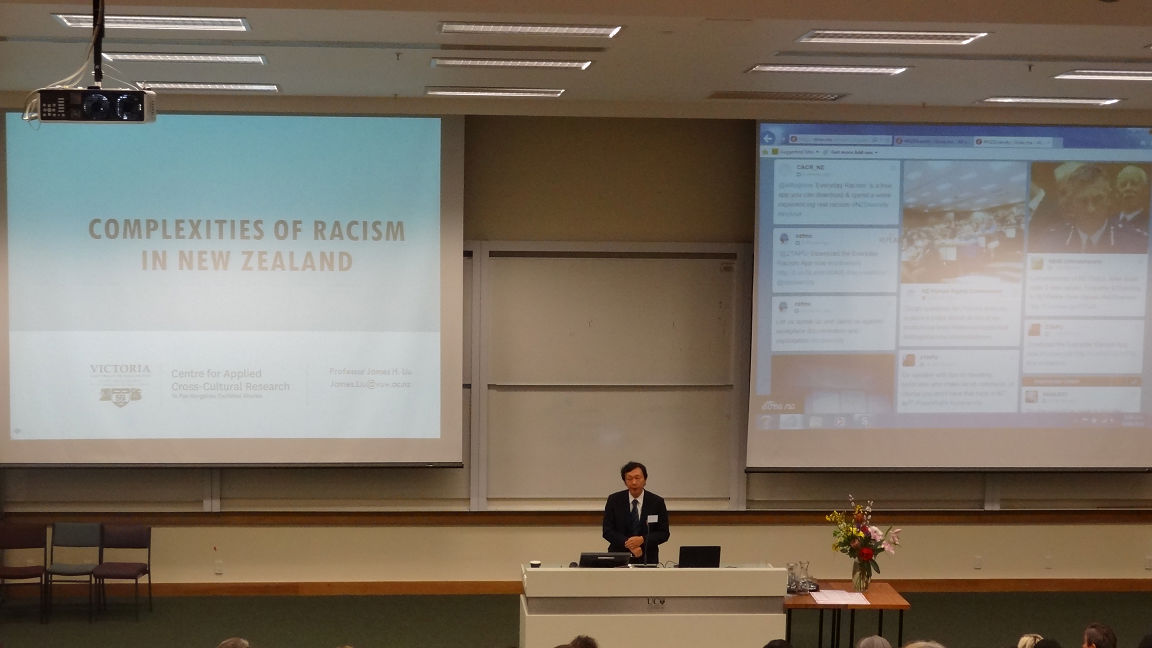
Although overt racism is still a problem in New Zealand, there are many other subtle ways racism affects peoples’ lives. According to Keynote Presenter, Priscilla Brice, founder of All Together Now, an Australian based anti-racism organisation, racism can be subtle. 'Everyday racism' can be as indirect as disrespect, suspicion or mistrust. Priscilla recommends three remedies to help stop denial of racism:
- celebrating diversity
- preventative and educational programmes
- regulations and laws.
Institutional racism
Institutional racism is another often overlooked form of racism that can have a big impact. Government programmes such as health-care and criminal justice systems can systematically discriminate as they are geared for the majority ie. New Zealand Europeans/Pakeha. This can create disadvantages for migrants and minorites as they are not represented, often don’t have a voice, and can be excluded from shaping values and decisions.
Although these stark realities were presented quite bluntly over the course of the two days, we heard from representatives of many organisations that are working to change these issues. Support from everyday people and organisations do help to give these issues a voice, but the biggest solution needs to be championed from the top levels, with policy playing a big part in making these issues more transparent and effective.
Diversity in business
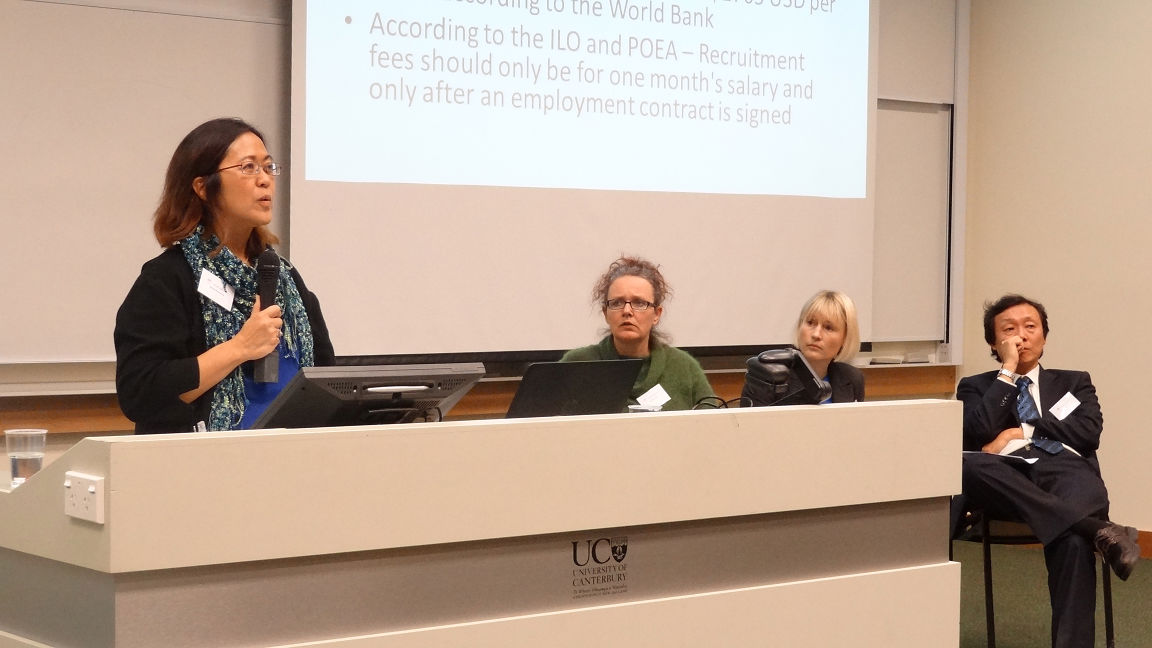
During discussion of employment in business, panellists agreed that diversity in the workplace resulted in innovation and growth. With employees from 18 nationalities and ethnicities, CEO of AIA Insurance, Wayne Besant said it simply: “Diversity is an opportunity, not a problem”.
Other panellists gave practical advice such as creating diversity councils, ensuring a gender balance, giving awards and recognition, and targeting a diverse array of customers with a diverse array of employees.
As the Director of People and Communications of BNZ, Annie Brown said, "It is not only important to bring a diverse community into the business, but it is also important to have the sponsorship and championship from the top senior management teams."
The overall message was simple: not only do these practices reflect a multicultural New Zealand, but they are also good for business.
National social cohesion
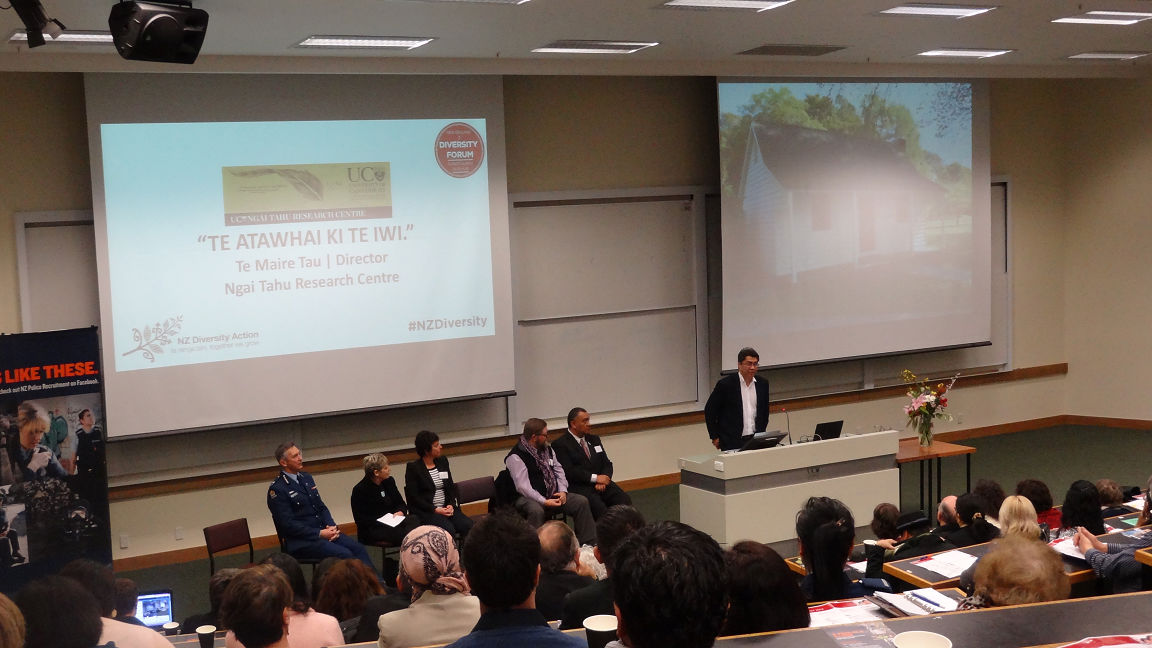
As an migrant nation, New Zealand has long since identified as being diverse. New Zealand is unique in that it has a bicultural identity, where both Maori and Pakeha are equally representative of New Zealand nationhood.
As the ethnic population increases, it becomes increasingly important to address how various minority groups perceive each other. According to CACR’s Co-Director, Professor James Liu, New Zealand Europeans are open to migrants in principle, but are often prejudice in practice.
How can a nation make the most of the opportunities diversity brings? Professor Liu proposed reducing prejudice and discrimination by drawing from democratic principles of liberalism in order to grow a multicultural society within a bicultural nation. Other panellists encouraged everyday Kiwis to stand up, speak out and not rely on policymakers alone.
Youth forum
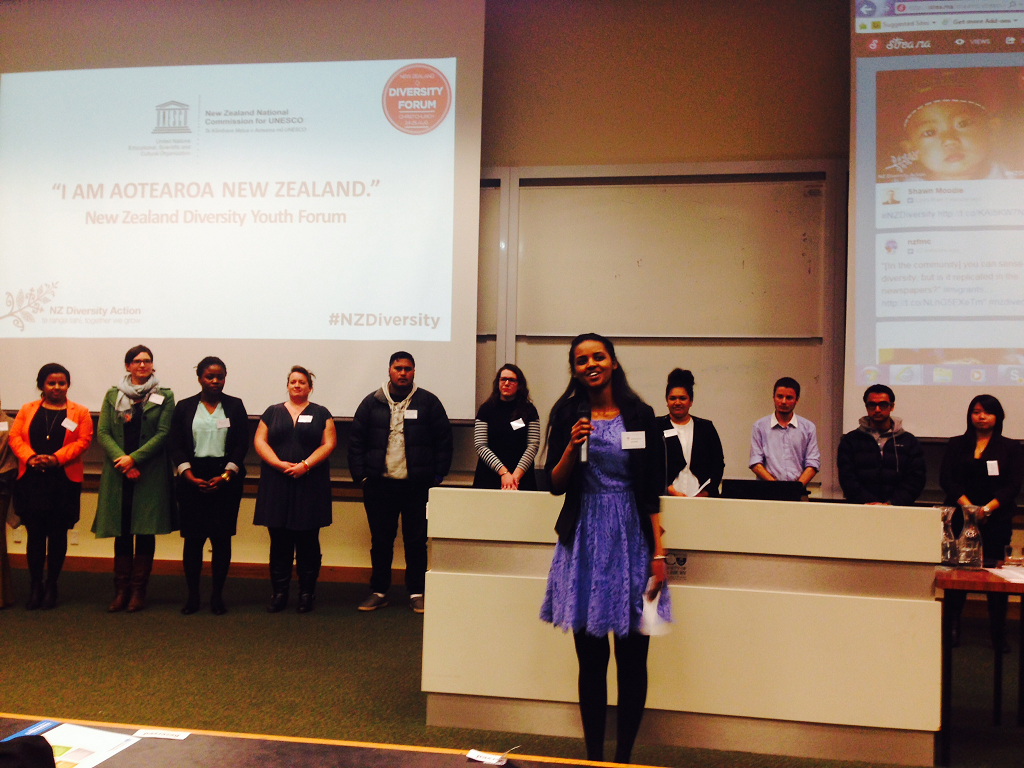
The Youth Forum participants reflected on what it means to be Aotearoa New Zealand. The youth were refugees, first and second generation migrants, and New Zealand-born. Regardless of the way they looked or sounded, they all were Kiwis. Willingness to contribute and participate in a shared community is what all New Zealanders have in common, and is the only important criteria in deciding who’s Kiwi.
Read more about the Diversity Forum here.
